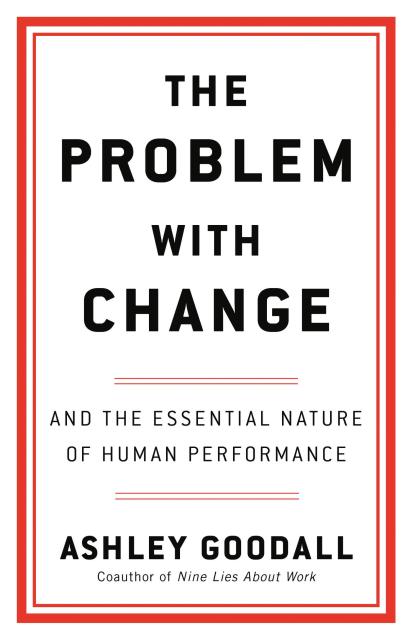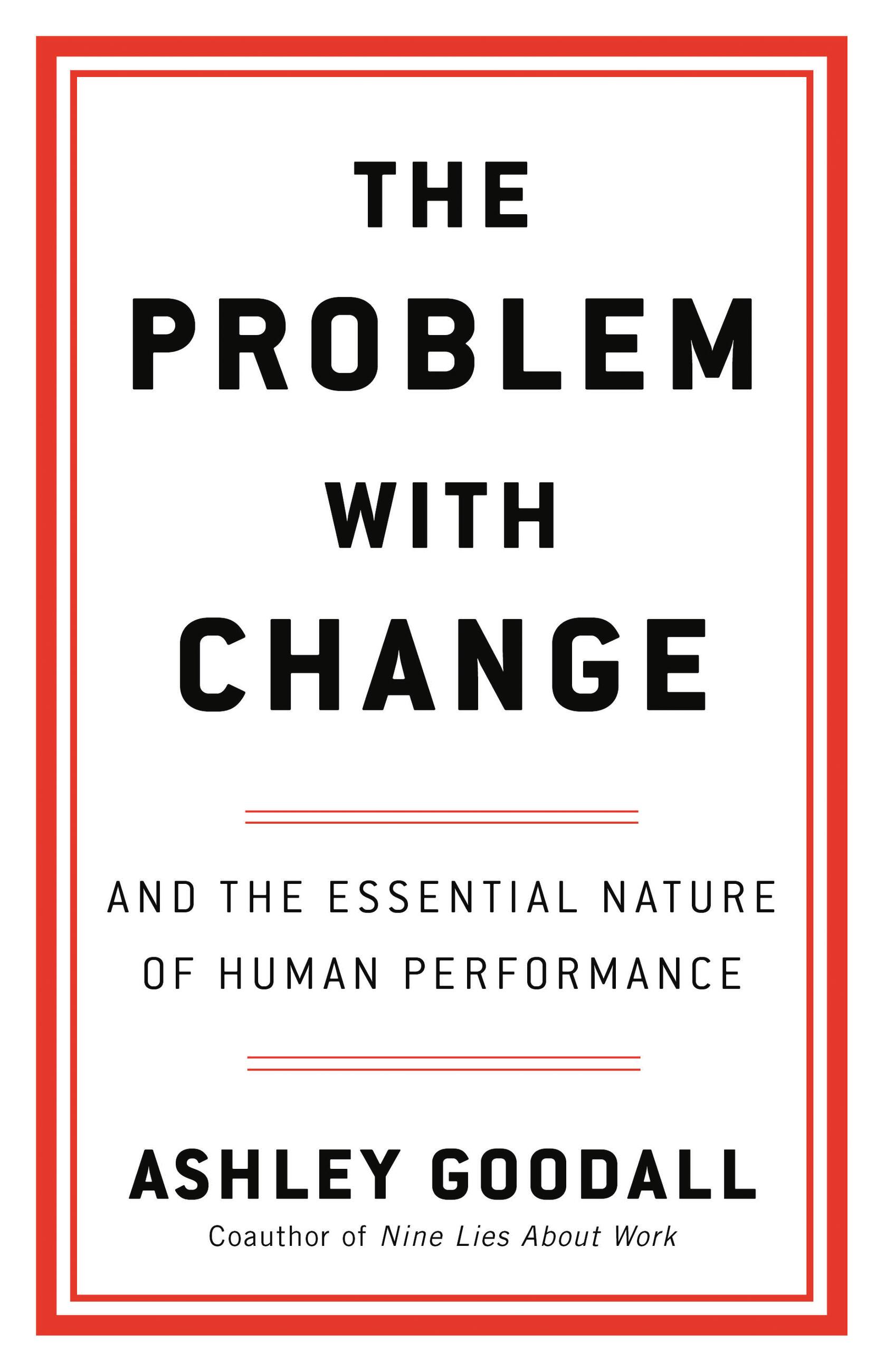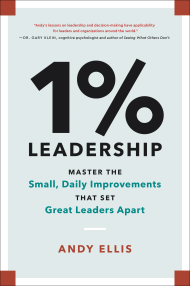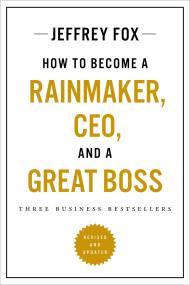Promotion
Use code HACKINGHR for 10% off + free shipping over $45
The Problem with Change
And the Essential Nature of Human Performance
Contributors
Formats and Prices
Price
$30.00Price
$39.00 CADFormat
Format:
- Hardcover $30.00 $39.00 CAD
- ebook $14.99 $19.99 CAD
- Audiobook Download (Unabridged) $24.99
Also available from:
For decades, “disruption” and “change” have been seen as essential to business growth and success. In this provocative and incisive book, leadership expert Ashley Goodall argues that what has become a sacred dogma is both wrong and harmful.
Whether it’s a merger or re-org or a new office layout, change has become the ultimate easy button for leaders, who pursue it with abandon, unleashing a torrent of disruption on employees. The result is what Goodall calls “life in the blender”—a perpetual cycle of upheaval, uncertainty, and unease.
The problem with change, Goodall argues, is that a culture where everything from people to processes to strategic priorities are constantly in flux exerts a psychological toll that undermines motivation, productivity, and performance. And yet so accustomed are we to constant churn that we have become numb to its very real consequences.
Drawing on two decades spent leading HR organizations at Deloitte and Cisco, Ashley Goodall reveals why change is not the same as improvement, and how, by prioritizing team cohesion (instead of reshuffling teams at will), by using real words (rather than corporate-speak), by sharing secrets (not mission statements), by fixing only the things that are truly broken (instead of moving fast and breaking everything in sight, and more, leaders at every level can create the stability that people need to thrive.
Genre:
-
“How refreshing to find a leadership expert who will admit the truth—that change isn't the same as improvement, and that companies need stability, community, and real respect for workers as much if not more so than (yet another) round of ‘disruption.' Corporate leaders could save a lot of money, time and pain by taking Goodall's advice.”Rana Foroohar, global business columnist at the Financial Times and author of Homecoming
-
“Do you know that research shows that people undergoing organizational change are more likely to take antidepressants? While change and disruption have become catchwords, they exact an enormous toll on employees and their companies. This smart, well-written book can help leaders resist the temptations toward chaos so currently popular.”Jeffrey Pfeffer, Professor of Organizational Behavior at Stanford’s Graduate School of Business and author of Dying for a Paycheck
-
“Change is neither good, nor bad—and much of it is essential. But that doesn’t make it easy. In his brilliantly thought-provoking The Problem with Change, Ashley Goodall argues persuasively that a big part of the job of leaders is to create stability—to dampen the disruptive nature of change and to allow their teams to perform.”Stan McChrystal, General, US Army (Ret), CEO, McChrystal Group, and Co-author of Team of Teams: New Rules of Engagement for a Complex World
-
“Ashley Goodall has achieved something rare and wonderful: he has taken a subject with which we are all deeply familiar—change—and turned it upside down. And in so doing, he has not only revealed 'the problem with change,' but also how to find within it all the resiliency and creativity we need to succeed. The Problem with Change is a completely engaging book that causes us to reassess much of what we’ve all mistaken for 'truth' and reveals insights and ideas we can never unsee. Given how much change we are all grappling with today, this book could not be more timely. It is a must read for any leader trying to find their bearings in these wildly turbulent times."Marcus Buckingham, bestselling author and strengths researcher
-
“The Problem with Change is a timely exploration of the complexity of organizational transformation. It dispels the myth that change is an unqualified good and tackles the hard truths about the challenges it brings. With an honest and insightful look at the intricacies of change management, Goodall offers a fresh perspective that questions our readiness to disrupt and provides a nuanced discussion on stability in the workplace. As someone deeply invested in the growth and development of leaders and organizations, I believe this book is a crucial read for anyone looking to navigate the often turbulent waters of change.”Dr. Marshall Goldsmith, Thinkers50 #1 Executive Coach and New York Times bestselling author of What Got You Here Won’t Get You There
-
“A useful resource for leaders undertaking change, with tools for identifying how the hoped-for change has gone wrong.”Booklist
-
“In this wonderful book, Ashley Goodall spells out what we all know is true: disruption is more often than not an assault on the continuity that brings meaning to our work lives. A must-read for any leader interested in a more thoughtful, less destructive approach to change.”Herminia Ibarra, The Charles Handy Professor of Organisational Behaviour at London Business School, author of Act Like a Leader, Think Like a Leader and Working Identity
-
“A sturdy, well-informed treatise about trading change for care in the workplace.”Kirkus Reviews
-
“The Problem with Change fits with the times, refreshingly countering the received wisdom that change is always good...[and] offers leaders a series of invaluable insights on how to develop a people-centered, stability-led, approach to change.”Peter Chadwick, IEDP
- On Sale
- May 7, 2024
- Page Count
- 288 pages
- Publisher
- Little Brown Spark
- ISBN-13
- 9780316560276
Newsletter Signup
By clicking ‘Sign Up,’ I acknowledge that I have read and agree to Hachette Book Group’s Privacy Policy and Terms of Use







